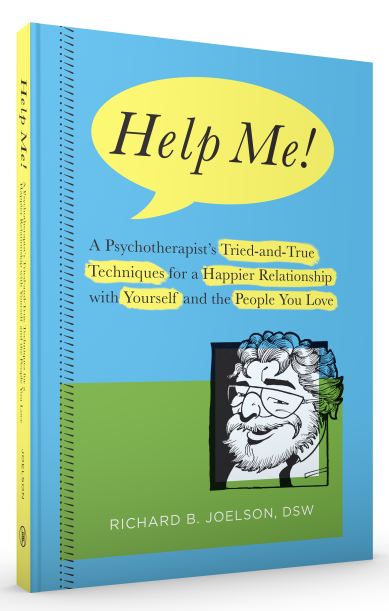
Photo by pathdoc on Shutterstock
Beware the double standard of being caring and attentive to the needs of others while neglecting yourself…
I have noticed that many of the patients I have worked with in my practice seem to be more attentive to the needs of others than to their own. They behave in caring ways toward their loved ones while often neglecting their own similar or even identical needs.
I recall the time that I commented to a patient about the elaborate duct tape repair job he had done on his eyeglasses after having seen this for several weeks. He replied that it “did the job just fine” and besides, getting new glasses would be “way too expensive.” I asked him what he would have recommended to his wife or to one of his children if their glasses had broken. Without missing a beat, he replied, “Oh, well I would tell them to go and get new glasses!” The conversation that followed was interesting and revealing as we wondered together why it was that he would not want to see them walk around in tape-repaired eyeglasses any longer than necessary and why it was that new glasses for them would not be too expensive, but somehow managed to be too expensive for him.
Another patient walked around with painful knees for many months and finally, after some urging from me and others, consulted the appropriate physician. The consultation dragged on for months as I listened to reports of the doctor canceling appointments, not returning phone calls, and even forgetting a scheduled appointment his office had made with my patient—all of which he accepted without question. Meanwhile, I watched him grimace in pain as he got in and out of his chair in my office at each weekly session. Different patient, same question: what would you be doing about this situation if this was a family member’s knee problem and not yours? Same answer: “I would never let her tolerate being treated this way by a doctor and I would not let her walk around in pain for so long without relief!”
These patients, like many others, take considerable pride in their care for family and friends and are vigorous in their efforts to seek or provide help for others. Too often, they, of all people, are not on that list… let alone first!
One observation that I think may be relevant here is that many people feel their self-esteem is wounded when it comes to their own problems and conditions and the needs that may result, as though having certain needs, especially medical ones, is some form of weakness or personal shortcoming. I see this when patients discuss their own health issues as opposed to the illnesses of others. Some patients, when they happen to be ill, sound apologetic: (“I’m so sorry… I never get sick”), and even a bit defensive (“I hate to be thought of as a sick person. This is just not like me!”). Some are even a bit blameful: “My secretary must have given me this lousy cold!” These same people “allow” others to become ill or impaired in some way without judgment or criticism, but not themselves. As a result, going to a healthcare professional, for example, is something they resist or disallow for themselves, even when it is appropriate and necessary.
It seems to me that the wisdom that applies here is rather simple and useful as a guide for action in situations like the ones described above. Beware the double standard of being a caring spouse, parent, and friend while managing to neglect yourself, as though somehow you did not require the same level of care. And, try your best not to be like the doctor in the old New Yorker cartoon who counsels his patient about the evils of cigarette smoking while puffing away on one of his own.
